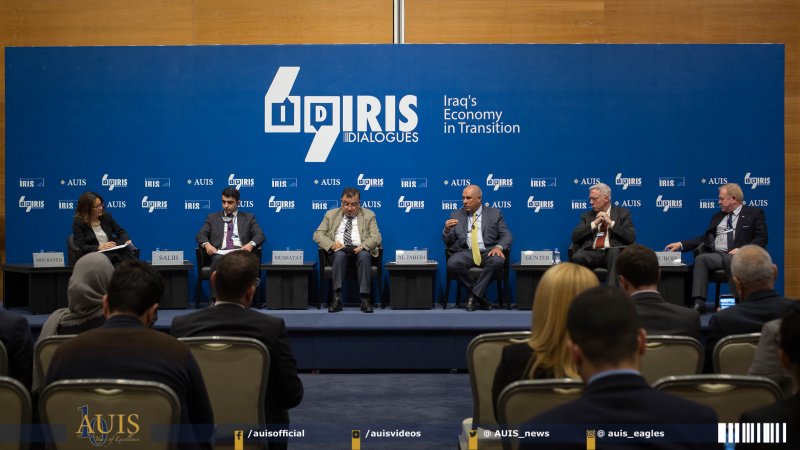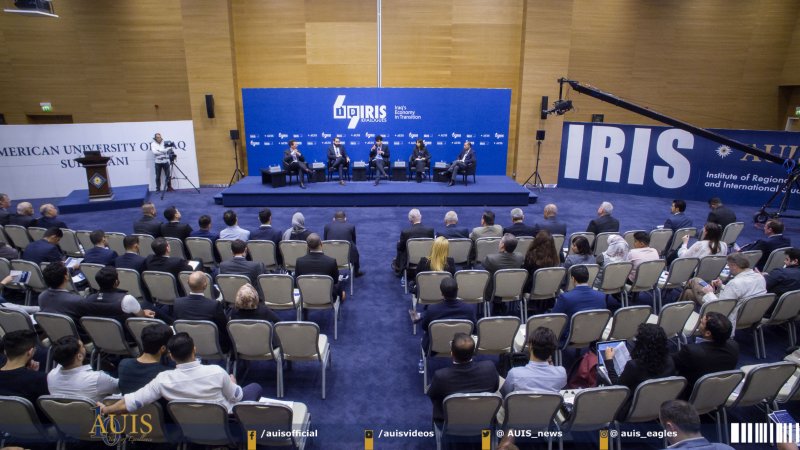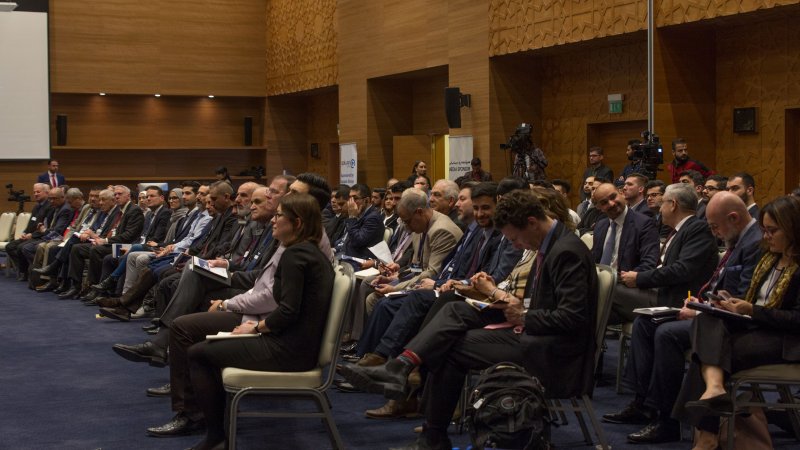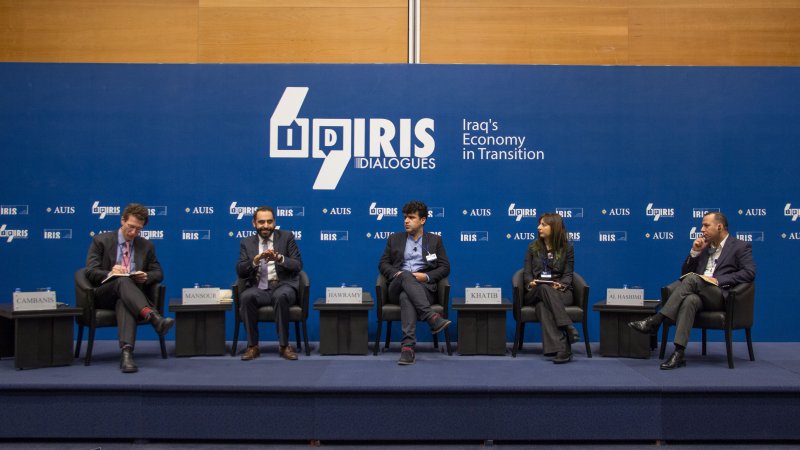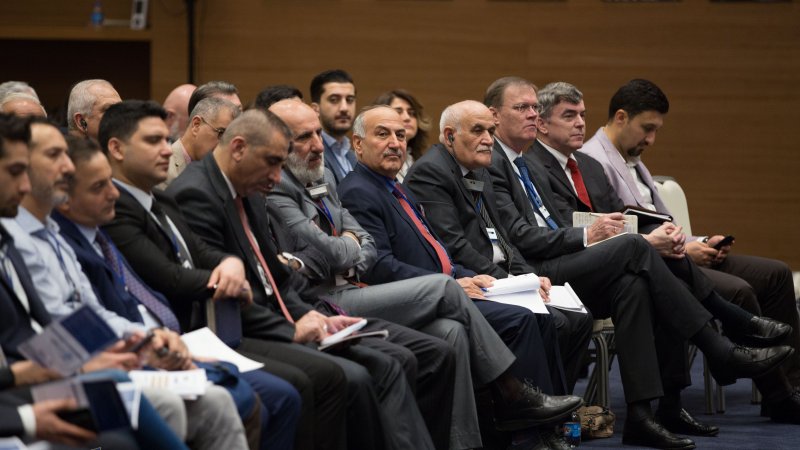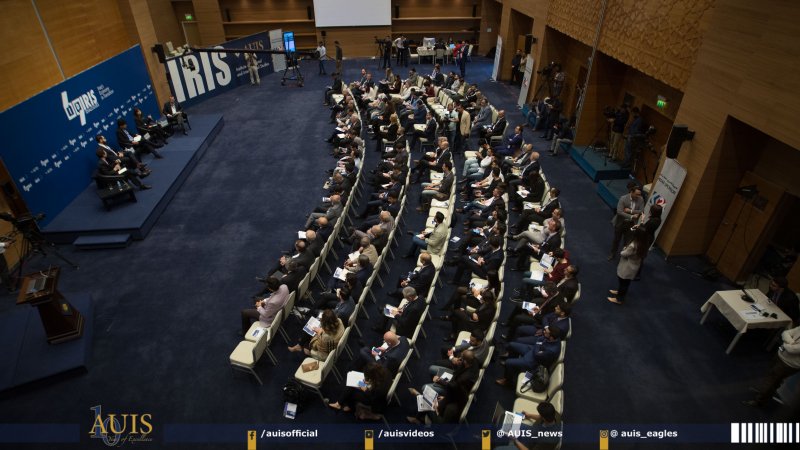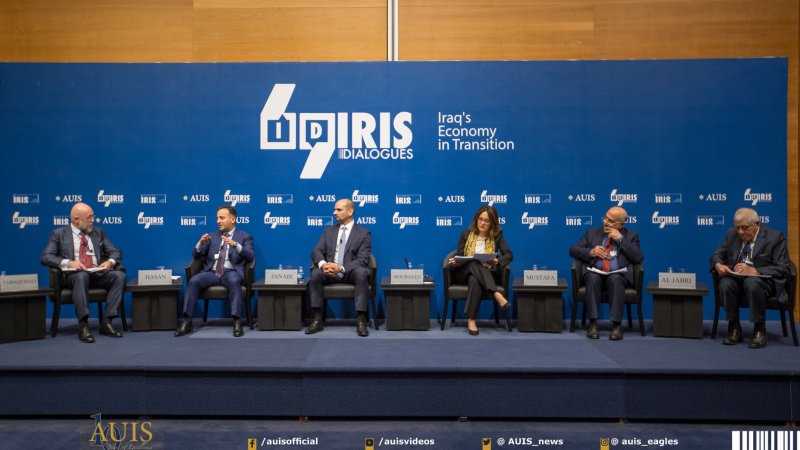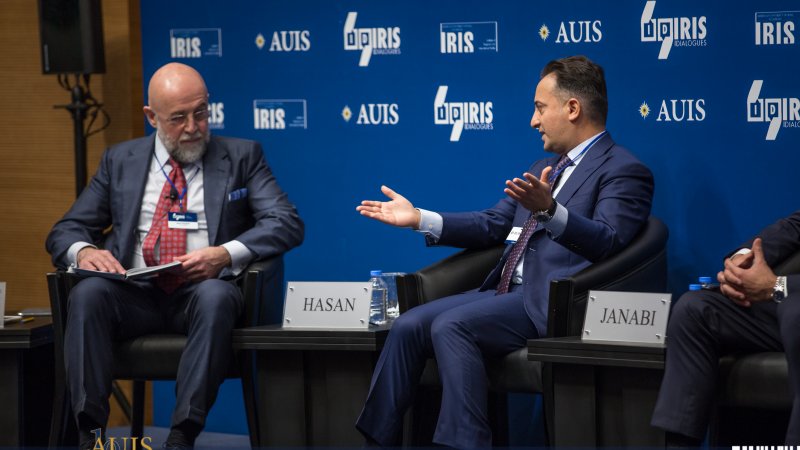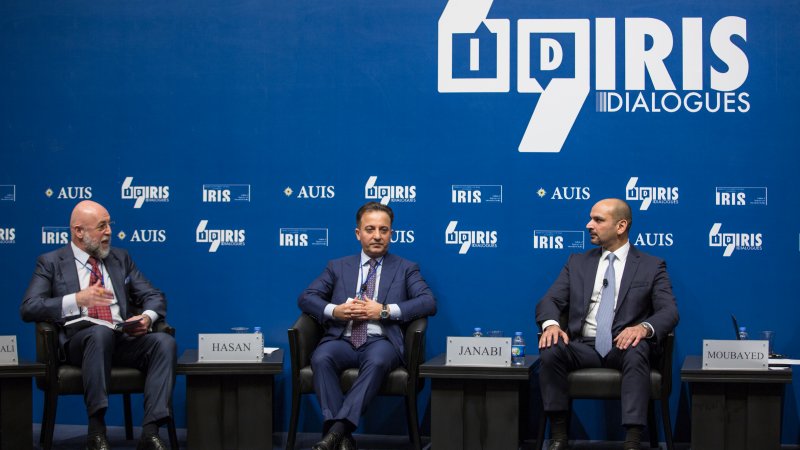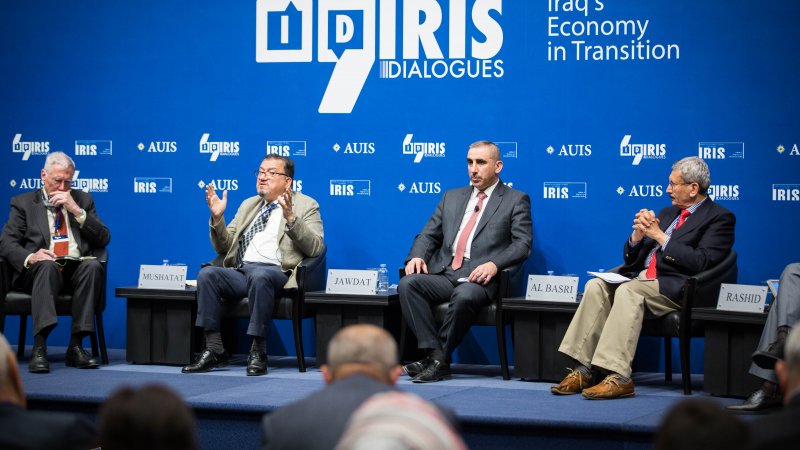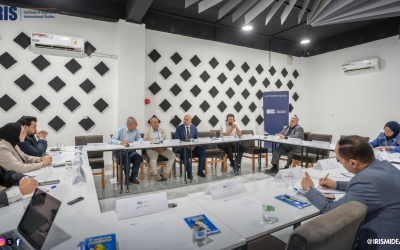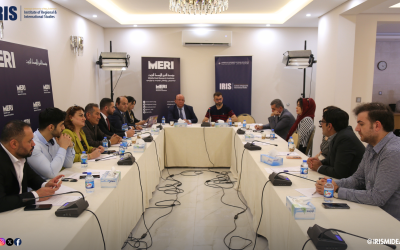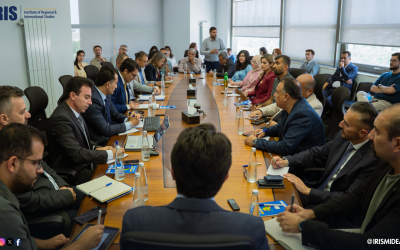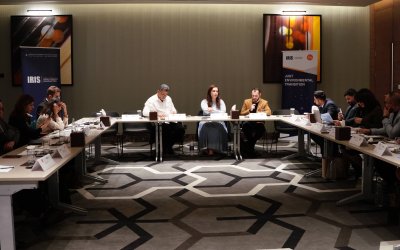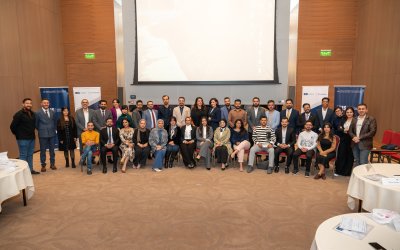On Sunday, March 11, IRIS hosted the inaugural IRIS Dialogues titled “Iraq’s Economy in Transition,” a day of panels dedicated to capitalizing on the February 13-14 Kuwait Conference for Reconstruction of Iraq. The panels focused on overcoming the war economy, increasing private sector participation, growing and integrating local economies, and mapping a path forward for the federal government of Iraq (GOI) and Kurdistan Regional Government (KRG) Panelists and attendees included federal and KRG government officials, and local and international academics, and private sector leaders.
In the first panel, “It Pays to Fight: Moving Beyond the War Economy,” Thanassis Cambanis of the Century Foundation, Dr. Renad Mansour of IRIS and Chatham House, Fazel Hawramy of Al-Monitor, Dr. Lina Khatib of Chatham House, and Advisora to the GOI Speaker of Parliament Hisham Al Hashimi discussed the challenges the economic sector in Iraq and Syria face in overcoming economies mobilized for war. Much of the discussion focused on the outsized role security agencies and politicians play in Iraq’s business sector and the prevalence of cross-border smuggling in maintaining the informal economy. The blurred lines between state and non-state economic activity have contributed to the development of weak state institutions in Iraq. If, however, current non-state actors can be provided with incentives through the state apparatus, aspects of the informal economy can be eliminated.
During the second panel, “What will it take for the Private Sector to Participate? Delivering on Kuwait,” AFC Iraq Fund’s Ahmed Tabaqchali, GE’s Rasheed Janabi, Iraq Institute for Strategic Studies’ Alia Moubayed, Iraq Private Banks League’s Sherwan Anwar Mustafa, and Iraq British Business Council’s Rasmi Al Jabri discussed the reforms necessary to increase private sector participation. Stability, regulations that do not create more obstacles for the private sector, and coordination between SMEs and chambers of commerce are all necessary steps to making Iraq more inclined toward private sector growth. Public-private partnerships (especially through the activation of the chamber of commerce and provision of funding for SMEs) are particularly important in sparking greater business growth and competition. Despite Iraq’s potential to improve the business environment, investors are unlikely to take a sustained interest in the country until a number of reforms--from downsizing the public sector to improving the regulatory environment--are implemented.
The third panel, “Iraq’s Local Economies: Growth and Integration,” with Alia Moubayed, Dr. Sabah Mushatat, an Advisor in the Prime Minister’s Office, Ali Hama Saleh, a KRG Member of Parliament, Dr. Jabr Al Jaberi, an Advisor to the Speaker of Parliament, Dr. Frank Gunter of Lehigh University, and Sylvain Dubois of the Institute on Governance, focused on the balance of economic responsibilities between the central and provincial governments. The issue of decentralization and targeted provincial-level development projects were central to the conversation. In particular, at the federal level, it was important to reduce bureaucracy, reduce the time needed to receive a certificate of investment, and establish criteria for investment. Likewise, there was a need to strengthen the capacity of provincial governments such as Basra to attract relevant investment, and give greater power to provincial or local governments for the management of the oil industry. Potential ways to encourage economic development at the local level are the decentralization of certain federal ministries, the creation of special economic zones with their own commercial codes, labor laws, and prices for goods and services, and the pulling back of harsh regulations on business.
The final panel of the day, “An Economic Path Forward for the Federal Government of Iraq & the Kurdistan Regional Government,” with Sherko Jawdat, MP in the KRG, Dr. Kamal Field Al Basri, Advisor in the Ministry of Finance, Ahmed Haj Rashid, GOI MP and member of the Finance Committee and Dr. Sabah Mushatat, discussed some of the systemic issues that continue to plague the GOI and KRG. In particular, there is a lack of trust between the government and society as a result of the government’s failure to provide salaries and combat corruption. Dr. Field warned against democracy without social contract and oil without transparency, and emphasized the absolute need for rule of law in order to achieve reform. Likewise, Ahmed Haj Rashid noted the lack of efforts to promote transparency, justice, and competition in the economy. In order for both the GOI and KRG to overcome this low level of trust, there needs to be greater levels of accountability, equality in economic participation, and enforcement of transparent financial policies.
We would like to thank our sponsor, Qaiwan Group, and our event partners Iraq British Business Council and American Chamber of Commerce Iraq.
High resolution photos of the event available here.

